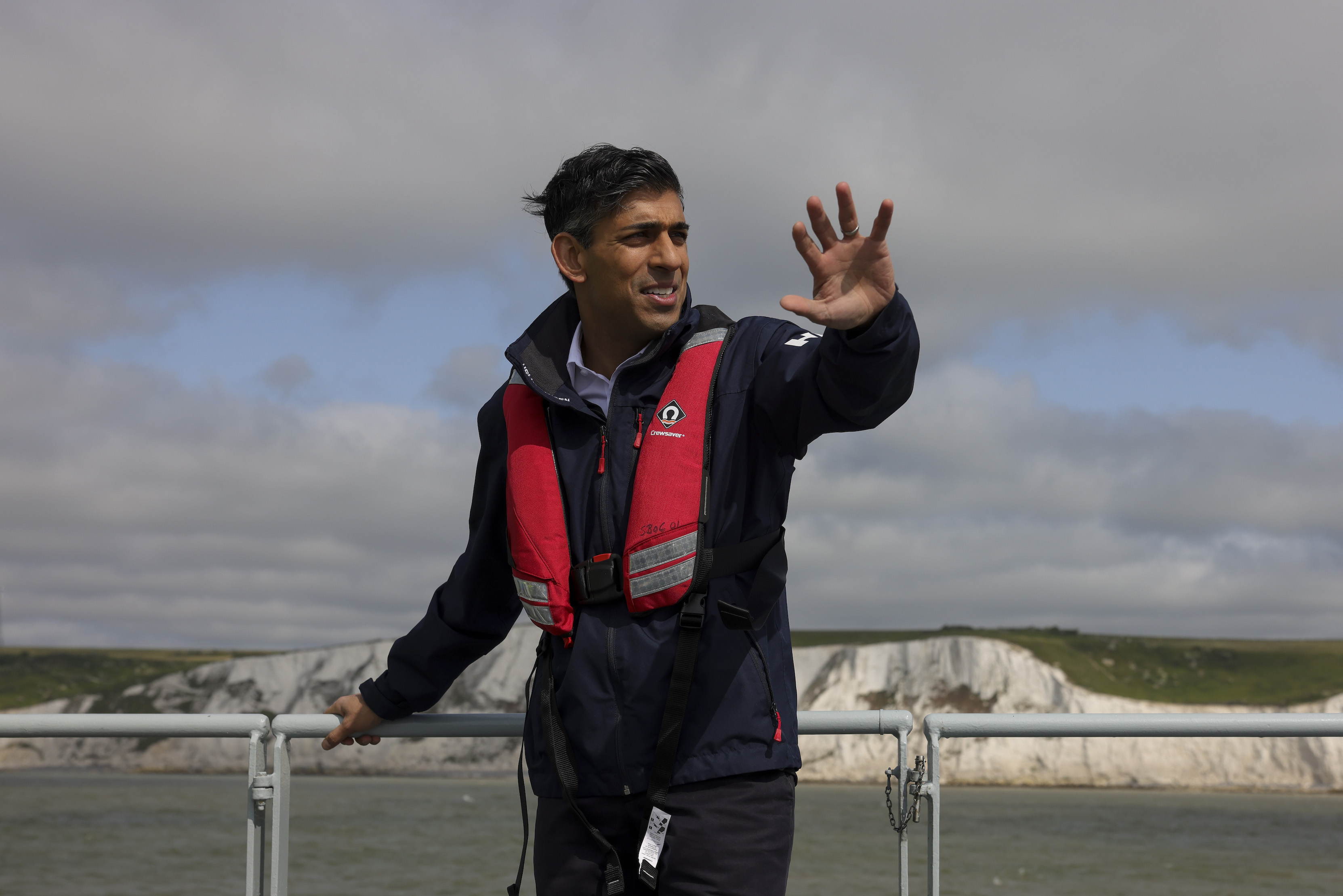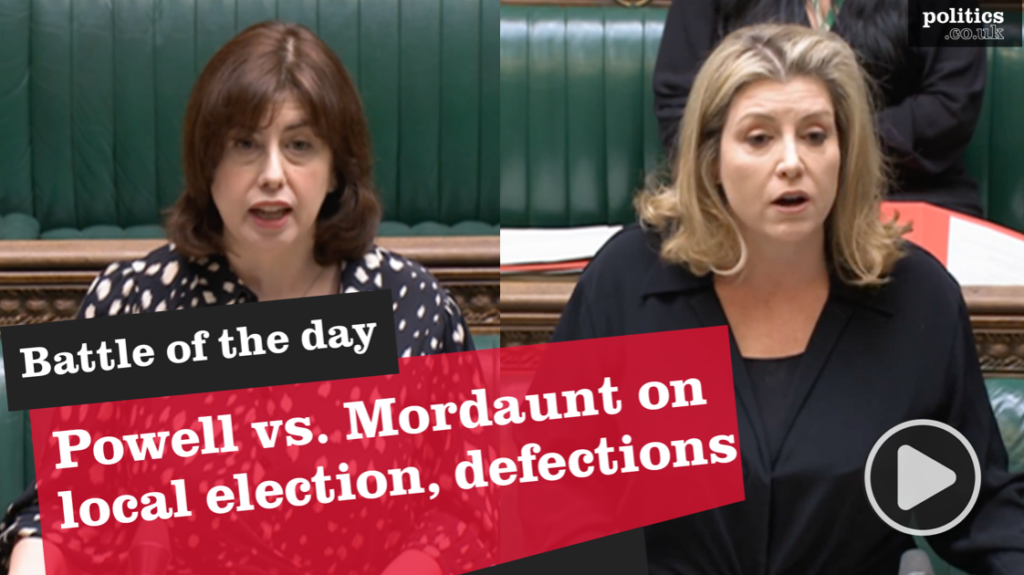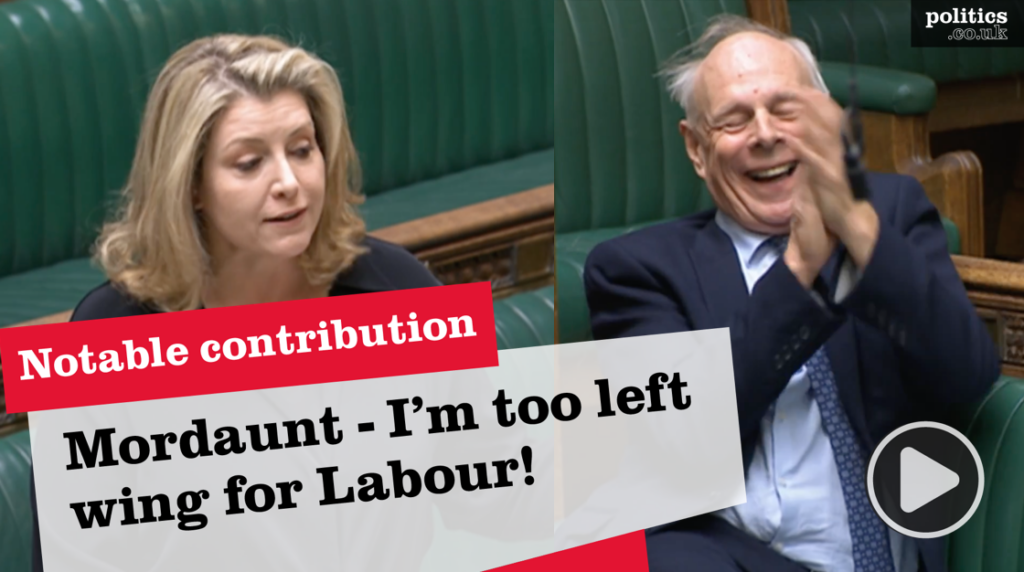How should a prime minister — especially one under such concerted pressure as Rishi Sunak — treat the relative quiet of summer recess? There are a few schools of thought.
One suggests the PM-in-question should bide his time, return to the drawing board and prepare a slew of politically-charged policies for a future King’s Speech — which we now know is due on 7 November.
Others retort that the slow summer is the best time for the government to go on the offensive, trialling new attacks lines and catching a fatigued opposition off-guard. So-called silly season exists to be tyrannised, this reading holds.
Right now, as the government’s small boats week enters its third, gruelling day, it is increasingly clear that Rishi Sunak has adopted the latter position. After ministers deliberately stoked speculation that No 10 might ditch some of its net zero commitments last month, this latest small boats blitz underlines once more that Rishi Sunak intends to be an activist prime minister — and a relentlessly right-wing one at that.


Of course, “Small boats week” comes as Sunak himself enjoys some vacation time in his California pad. It means that the plans now in effect will have been discussed in Downing Street for some time. The week also happens to coincide with news that the first asylum seekers have finally boarded the Bibby Stockholm barge, in Dorset, after a month-long delay.
The government says the Bibby Stockholm will provide better value for money for the taxpayer. That is despite worries that there is not enough room to accommodate up to 500 people onboard, a number itself less than 1 per cent of those waiting for their asylum claim to be processed. But on small boats policy such “vice signalling” is crucial. It may not be Suella Braverman’s desired Telegraph splash of an asylum-seeker-filled plane en route to Rwanda — but the barge’s very presence, the government hopes, stresses No 10’s profound seriousness.
“Small boats week” also comes with the news that the government is setting up a new “lefty lawyer” task force, designed to deal with those who “coach” clients to lie on UK asylum applications. The Home Office wants to use its memorably named “Professional Enablers Taskforce” to find more of them and to jail them — even for life.
Of course, it is far from clear how tangible the impact such new measures will have on ending small boats crossings. (The scheme in question, while officially launched yesterday, has actually been running for some time). Nonetheless, Sunak will calculate that it sends the right messages to swing voters not yet convinced by Labour’s positioning on migration.
But step back, and “small boats week” also underlines the complicated cabinet dynamics which dictate illegal migration policy and messaging. For example, the new “lefty lawyer” crackdown was fronted by Alex Chalk, a key Sunak ally — that is despite the fact that railing against the obstructionist “blob” is home secretary Suella Braverman’s foremost political passion. Meanwhile, Robert Jenrick, another of the PM’s closest cabinet confidants, marched across the media studios today to trail the government’s new small boats agreement with Turkey.
Once more we see that — even after her freelancing at the National Conservatism Conference now some months ago — Braverman has failed to craft a semi-autonomous institutional power base in government. It remains Robert Jenrick, and increasingly Alex Chalk too, who are entrusted with the trickiest media and parliamentary assignments on small boats policy.
Someone who No 10 will have wished had joined Braverman in her state of relative quiet is Conservative deputy chair Lee Anderson, who told the Express earlier this week that asylum seekers who don’t wish to be housed in a barge should “f*** off back to France”. And, in comments that are perhaps more worrying for ministers, Anderson also admitted that the government had “completely and utterly failed everyone” on immigration. He told GB News yesterday that: “[The situation is] is out of control, we are in power at the moment, I am the deputy chair of the Conservative party, we are in government and we have failed on this”.
Of course, we know the government walks a tightrope on immigration policy. At once it attempts to seize the moral high ground by branding its policies the only way to stop such dangerous channel crossings — while simultaneously appearing tough and absorbing into government individuals like Suella Braverman, someone who wants to escalate the government’s rhetoric on illegal migration.
In this way, “small boats week”, Braveman’s conspicuous quietude notwithstanding, essentially operates as a signal that the government is becoming more and more aligned with the second part of this equation. Tellingly, the supposed moderates are marched out to make the case for relentlessly right-wing policy: Jenrick, a “remainer” in the 2016 EU referendum, now talks up the prospect of Britain one day leaving the ECHR. Meanwhile, Chalk applauds Lee Anderson for channelling “righteous indignation of the British people”.
But what may prove more pernicious for the government’s long-term political prospects is that, in raising the salience of the “stop the boats” crusade, the government heightens the punishment for failure, both actual and perceived. In short, the PM will be forced to talk about Channel crossings until either they are stopped or he is at a general election — at every turn escalating his offering in a bid to be seen as more exacting.
And at the epicentre of this expectation-creation exercise is the Rwanda policy, which in the coming months will be ruled over by the UK Supreme Court. So we see Sunak’s central constraint: he wants to be an activist prime minister, sending his loyal lieutenants out to bat for the government in the media, but on his five pledges — including his most politically sensitive one on small boats — his passivity may be preordained .
In the end, comments such as those delivered by Jenrick on the ECHR, that the government will “take whatever necessary action is needed”, operate merely to rile up the party right. It forms part of a broader exercise in stoking energy that may, if the government backs down on the ECHR once the Supreme Court makes its ruling, in time flow directly back at the government. Cue more despairing cries from figures on the Conservatives’ culture war right like Lee Anderson.
What next in Sunak’s ‘small boats’ push?
One could of course argue that, given “small boats week” is about creating noise and raising the salience of illegal migration, it has proved successful. Senior ministers and secretaries of state have once again taken to the airwaves to repeat redoubtable cries about its seriousness on Channel crossings.
But one fact remains true: the Conservative party simply does not enjoy a strong position of trust on small boats, nor do they have an obvious means of clawing back its migration clout of yore. In all, just 9 per cent of voters surveyed by YouGov say they have confidence that the government will reduce the number of asylum seekers crossing the channel in small boats. And just 1 per cent feel “very confident”.
Rishi Sunak is hence playing a tricky high risk, high reward game. If he can shock the electorate and truly “stop the boats” — as his most politically sensitive pledge suggests — the electoral reward may be significant. But what recourse does the prime minister have left to act decisively? In the end, it is perhaps little wonder that much of this week has focused on the effectiveness of the “blob” rather than the effectiveness of the government.












